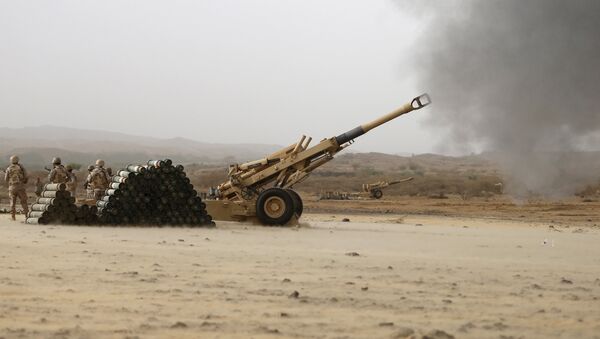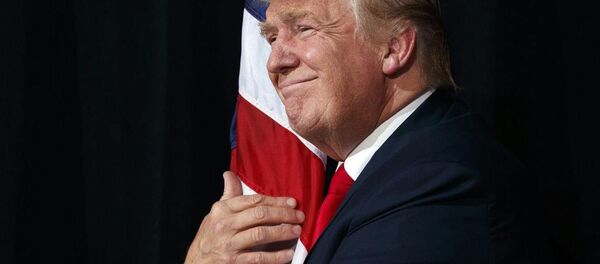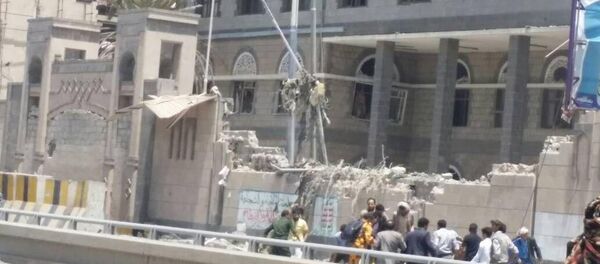Khashoggi entered the Saudi consulate in Istanbul on October 2 to never be seen alive again. Riyadh initially denied any knowledge of the journalist's whereabouts, but later the Saudi authorities admitted that the Washington Post columnist had been killed inside the consulate.
The international community has expressed concern over the case. Germany has halted all arms sales to Saudi Arabia and banned 18 Saudi suspects in the case from entering Europe's Schengen area. Berlin said the travel ban had been coordinated with Paris and London, although the United Kingdom is not part of the Schengen area.
READ MORE: Turkey Accuses US of Trying to Hush Up Alleged Saudi Role in Khashoggi Killing
In mid-November, the Saudi-led coalition told the United States it would no longer need Washington's assistance in refuelling its jets. Although the move came amid the international scandal surrounding the Khashoggi case, US State Department spokeswoman Heather Nauert said there was no connection. US members of Congress had previously called for the United States to stop refuelling the coalition's aircraft.
At the same time, US President Donald Trump has warned against breaking up relations with Saudi Arabia, citing the potential rise of oil prices to $150 per barrel. Trump said Tuesday that the CIA did not have a definitive answer on whether Saudi Crown Prince Mohammed bin Salman was aware of the prepared killing of the journalist.
READ MORE: Trump Backs Saudi Arabia Despite CIA Report Uncovering Khashoggi Killing
Pressure on Riyadh
Even though Trump appears hesitant to introduce harsh sanctions against Riyadh, there have lately been some developments on the peace process in Yemen.
In late October, US Secretary of State Michael Pompeo issued a statement urging all parties to conflict to back the UN plan for the Yemeni settlement. Pompeo stressed the need for a ceasefire and for talks to begin in a third country in November.
READ MORE: US Senate Demands Trump Explore Saudi Sanctions Over Khashoggi Murder
There could be "positive consultations" if the United States puts pressure on Riyadh, especially given the difficult position that the crown prince is in, according to professor Mohammad Marandi, an expert on American studies and post-colonial literature, who teaches at the University of Tehran.
"His [the crown prince's] reputation is damaged badly, he has no credibility: abroad and at home, people have seen him throwing his own people under the bus so he is not in a strong position. If the Americans want a deal, they can force him toward peace talks," Marandi told Sputnik.
However, even if Washington were to influence the Saudi-led coalition, there are still other parties to the Yemeni peace process.
Houthi Making Effort
"Let us remember that they had failed to participate in the talks, which were proposed and arranged by the UN envoy several months ago, despite the presence of other right-wing parties. Besides, they didn't fulfil any obligations agreed at the consultation held in Kuwait prior," the expert told Sputnik.
Houthi rebels cited their concerns over travel safety through airspace controlled by Saudi aviation as a reason not to attend the talks in Geneva. The Saudi-led coalition said it gave permission for the Houthis to fly out. As a result, the talks were launched with just external mediators and the Yemeni government delegation present.
READ MORE: Saudi Arabia, UAE to Allocate $500Mln of Aid to Yemen — Humanitarian Center
However, the rebels are now also quite vulnerable, the Saudi expert said.
"The military situation of the Houthis is very difficult as they have lost credibility at home, also because of the reduction of the Iranian support due to the blockade, international pressure and the Iranian financial crisis," Al Turki said.
All sides in Yemeni conflict are "committed to attending" the upcoming talks in Sweden, UN Special Envoy for Yemen Martin Griffiths told the UN Security Council on Friday.
Furthermore, in an apparent step toward a new stage of the peace settlement, Houthi rebels said on Monday that they were ready to declare the ceasefire with the Saudi-led coalition and pursue the peaceful settlement of the crisis.
READ MORE: Skirmishes, Airstrikes Resume in Hodeidah, Yemen — Reports
The negotiations could help move toward the peaceful resolution of the conflict ravaging the country since 2015, with civilians facing extreme food shortages and cholera outbreaks.
The views and opinions expressed by the experts do not necessarily reflect those of Sputnik.



